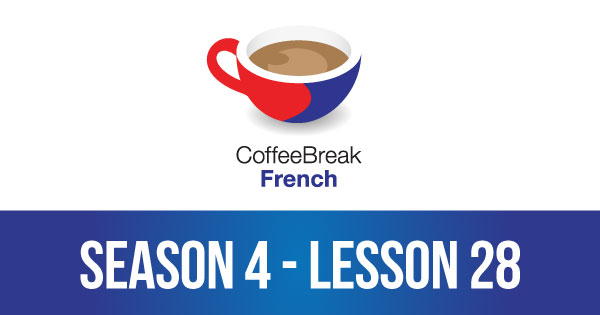Mark and Pierre-Benoît are back with another episode of Coffee Break French, this time working through Matthieu’s latest email to Gabrielle. As usual the email is rich in complex grammatical structures and idiomatic expressions, and through further examples and clear explanations, our two hosts will help you understand everything. Points covered in this episode include using the subjunctive after avoir peur que and craindre que, and lots more. In the opening section, Mark also mentions his new year’s resolutions to learn Swedish and to record a song each day of the year and publish it on his personal blog.
Month: January 2015
Newsletter Activity 1 – Quel temps fait-il?
Coffee Break French learners form a worldwide community. Today we’re asking you a simple question: quel temps fait-il? – what is the weather like where you are?
If you’ve just started learning French, you could use a simple expression such as the following:
- à Londres il fait froid – in London it’s cold
- à Phoenix il pleut – in Phoenix it’s raining
- à Melbourne il fait très chaud – in Melbourne it’s very hot
You may also be familiar with more colloquial weather phrases. Have you heard of any of these?
- il pleut des cordes – it’s pouring / raining heavily
- il pleut à verse – it’s pouring / raining heavily
- il fait un froid de canard – it’s bitterly cold (literally “duck” cold!)
Over to you. Tell us where you are and what the weather is like. If you want to push yourself, tell us what the weather was like yesterday using a past tense, and what the weather will be like tomorrow using a future tense! Scroll down to the bottom of this page and leave your response.
Newsletter Activity 1 – tener que + infintive
Are you familiar with the expression tener que + infinitive? It means “to have to do something”. You simply use a part of the verb tener, follow it with the word que and then add in a verb in its infinitive form.
Por ejemplo:
- tengo que practicar mi español
- tengo que comprar la comida
- tuve que comer rápido para poder llegar a tiempo
- tendría que hacer mis deberes antes de ir a jugar
Tener que expresses the idea of having to do something, so the first of our sample sentences means “I have to practise my Spanish”. Do you know what the others mean? Have a go at identifying the tenses we’ve used in the example sentences and then try to come up with your own sentence using this structure. If you’ve just started learning Spanish, don’t worry – simply post one of the sentences above in the comments. However, don’t copy and paste – the act of typing out the sentence yourself will help you learn this particular phrase! If you’re more advanced, try using tener que + infinitive in a different tense.
¡Esperamos vuestros comentarios!




